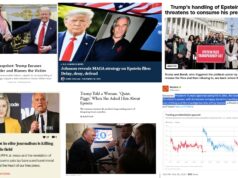From FWIW Virginia:
The digital battle for the House of Delegates begins
Checking in on delegate candidates’ fledgling digital programs
|
|
Welcome to FWIW Virginia, where we analyze digital spending trends on both sides of the aisle in the 2021 Virginia statewide and legislative elections. Each week, we look at how campaigns are investing in digital engagement and the online tactics they use to reach voters across the Commonwealth. Was this email forwarded to you? Click here to subscribe.
While much of the national attention is focused on the #VAGov race, the battle to control the House of Delegates is heating up. Republicans need a net gain of 6 seats in order to take back the chamber, and we’re tracking around 28 races that are competitive or potentially competitive. Just like in 2019 and 2017, digital spending in these delegate races has been relatively low through the dog days of summer, but with campaign coffers filling up, staff being hired, and voters tuning in, candidates across the Commonwealth are stepping up their efforts to reach voters online.
Which delegate campaigns are already ramping up their digital programs? And what strategies are those campaigns using to break through with voters? We take a look in this week’s edition of FWIW Virginia. But first…
2021 by the Numbers
FWIW, here are the top 10 spenders specifically targeting Facebook users in Virginia last week.
Glenn Youngkin, who spent the most targeting Virginians on Facebook last week, has finally launched new ad creative, after weeks of pumping money into the same single Facebook ad. The new messages he’s pushing include supporting law enforcement and highlighting crime.
And here’s how total digital ad spending stacked up this week in Virginia’s statewide races.
We’re also tracking cumulative digital ad spending across the state, including spending from candidates for statewide offices, competitive or potentially competitive Delegate races (any race under a 15 point margin in 2019), and partisan outside groups with spending specifically targeted at Virginia elections.
So far, most of the digital ad spending we’re seeing in Virginia is from the #VAGov race, with Democratic nominee Terry McAuliffe heavily outspending GOP nominee Glenn Youngkin on Facebook and Google. Also contributing to Democrats’ spending advantage is a series of digital delegate-focused IEs offsetting the small spending gap between GOP and Democratic candidates for delegate.
Checking in on the House
So far, in the digital battle for the House of Delegates, Republican candidates are leading the way in terms of digital ad spending on Facebook and Google. While we aren’t exhaustively tracking spending from every candidate in all 100 districts, we are tracking spending from nominees in every district decided by less than 15 points in 2019. We don’t expect a large number of these districts to be truly competitive down the stretch, but we’d rather cast a net slightly too wide than too small.
The districts in our tracking data are: 10, 12, 13, 21, 26, 27, 28, 31, 33, 40, 50, 51, 62, 66, 68, 72, 73, 75, 76, 81, 83, 84, 85, 88, 91, 93, 96, 100
Here’s how digital ad spending on Facebook and Google directly from the campaigns in these districts has played out since the June 9th primary:
In all, Republican delegate campaigns have opened up a small spending gap versus their Democratic counterparts, with a large chunk of that spending coming from a handful of GOP candidates running for open seats or against Democratic incumbents who are racing to build donor lists and introduce themselves to voters.
Republican Candidates
A handful of Republican candidates are driving most of the digital ad spending so far in the race for the House, spending money on everything from list building to persuasion. However, ad spending needs to be paired with effective creative, and Tim Anderson’s campaign, the top spending delegate campaign on digital ads, is proof that money isn’t everything.
Anderson is the GOP nominee in HD 83 running against Del. Nancy Guy, who won by just 0.2 points in 2019, and his early campaigning in this key swing district is likely giving the GOP caucus some serious heartburn. Since the June 9th primary, Anderson has spent nearly $4,000 on unhinged digital ads that appear entirely self-produced, including ads boosting a poorly lit 6 minute(!) video about his opponent’s campaign contributions, complaining that Virginia isn’t actually a good state to do business in, and a massive block of text promoting personal attacks against him.
While Anderson’s ads are largely bizarre and unfocused, most of the other digital ads we’ve seen from GOP candidates have been more straightforward. Harold Pyon, running against Del. Dan Helmer in HD 40, and Gina Ciarcia, running a longshot race in the increasingly Democrat-dominated HD 2, are running donor acquisition + list building ads on red meat issues like “election integrity” and Critical Race Theory.
These ads reflect the VA GOP’s reliance on red meat issues of the day, with GOP candidates across the commonwealth trying to run against Critical Race Theory and gubernatorial nominee Glenn Youngkin scheduled to appear at an “election integrity rally” next weekend that happens to coincide with the anniversary of the signing of the 1965 Voting Rights Act.
Effective digital persuasion ads have been rare across the board so far, but Mike Cherry and A.C. Cordoza are both up on YouTube with solid, biography-focused creative focused on persuasion with mainstream swing voters. Cherry’s ad focuses on his background as a former principal at Life Christian Academy (which teaches students that Satan created psychology, Nelson Mandela was a Marxist, and refers to civil rights figures as “Black Supremacists”), while Cordoza’s ad highlights why he decided to leave the Democratic Party.
Notably, both of these candidates are running in Democratic-leaning districts – HD 66, where Cherry is running, is currently represented by retiring GOP Del. Kirk Cox but voted for Tim Kaine by 14 points in 2018, and Cordoza is running against Dem Del. Martha Mugler, who won by nearly 10 points in 2019. While lots of GOP candidates are focused on red meat issues, these candidates are focused on early persuasion to pick off swing voters in tough districts for Republicans.
The GOP thus far lacks a digital independent expenditure group on the scale that Democrats have appeared to have, but they’ve received some support from Americans for Prosperity, which has spent just north of $25,000 since the June 9th primary running ads focused on building name ID for GOP candidates in swing districts.
Democratic Candidates
Digital ad spending from Democratic delegate candidates has been almost non-existent so far, but incumbent Dels. Dawn Adams (HD 68) and Nancy Guy (HD 83) have led the way with just $750 in digital ad spending between them. Adams recently launched ads promoting CNBC’s ranking of Virginia as the best state in the country to do business, while Guy is running ads focused on local solutions to climate change, a key issue in her Virginia Beach-based district.
While Democratic campaigns haven’t been directly spending on digital ads, they’ve been buoyed by a fairly large outside digital effort from a number of organizations. Since the June 9th primary, Democratic delegate candidates have been the beneficiaries of over $82,000 in digital independent expenditures on Facebook and Google, including over $39,000 from Freedom Virginia, $40,000 from Emerging American Majorities, and $3,200 from the Virginia League of Conservation Voters.
As we highlighted earlier this month, the Democratic-aligned group Freedom Virginia is running a digital program supporting vulnerable Democratic delegates, focusing on energy costs and prescription drug prices. This week, the group spent over $10,000 on Facebook ads, putting them on pace to become the state’s largest post-primary outside spender on digital ads in the next week or so.
Emerging American Majorities, another Democratic-aligned outside group, spent $40,000 on Facebook ads and an additional $14,000 on Snapchat ads supporting Democratic delegate candidates. However, their spending occurred entirely in June, with the group not running any Facebook ads since July 1st.
The Virginia League of Conservation Voters recently launched their own outside digital effort, running FB + Google ads highlighting how Democratic delegates voted to advance a clean energy economy that will create jobs while protecting the environment. So far, the group is running ads supporting Dels. Chris Hurst, Elizabeth Guzman, Wendy Gooditis, Joshua Cole, and Lamont Bagby. The group’s general election-focused digital spending picked up around 2 weeks ago, spending $2,600 on Facebook + Google from July 19th to July 25th.
It’s still early, but digital ad spending focused on the House of Delegates appears to finally be picking up after a mostly slow summer. As digital ad spending continues to ramp up, we’ll continue to keep an eye out for how delegate campaigns + outside groups fight to reach voters online.
Thanks for reading this week’s FWIW Virginia! We’re so excited to be back following these critical elections in the Commonwealth. If you enjoy reading this type of content each week, we hope you’ll support our work by clicking share and tweeting out this newsletter below! As always, email us with ideas of what you’d like us to dive into next.
You can also sign up to receive our national newsletter, FWIW, here.
You’re on the free list for FWIW Virginia. For the full experience, become a paying subscriber.


















![Thursday News: “MBS seemed less aggrieved than Trump”; “The Vibecession Deepens”; “[Trump DoJ] Simply Can’t Be Trusted with the Epstein Files Transparency Act”; Trump’s “lame duck dictatorship”; “Trump’s ‘piggy’ insult is stoking more outrage than usual”](https://bluevirginia.us/wp-content/uploads/2025/11/montage1120-238x178.jpg)








